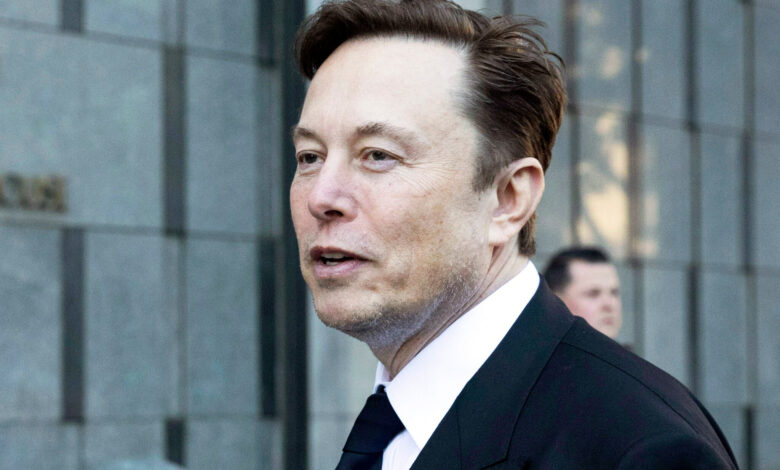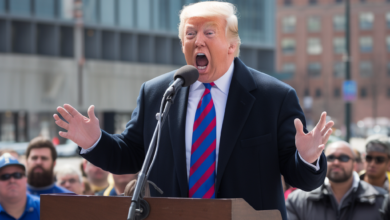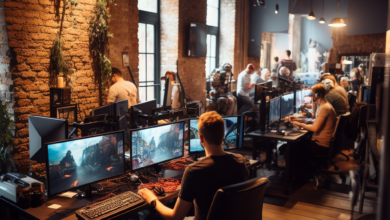
A gathering of prominent tech titans descended upon Capitol Hill for an extensive brainstorming session with senators, delving into the complex realm of regulating artificial intelligence (AI).
Among the notable attendees were Elon Musk, Mark Zuckerberg, Bill Gates, and Sam Altman, each of them bringing their unique perspectives and insights to the table.
The meeting, held in a Senate building, commenced at around 10 a.m. ET, with Elon Musk making a dramatic entrance in one of his iconic Tesla vehicles. Inside the gathering, Musk sounded a clarion call about the profound risks AI poses to civilization. Senator Cynthia Lummis of Wyoming, who attended the session, noted down Musk’s words in her notebook, underscoring his message that AI represented a “civilizational risk.” Other panelists echoed sentiments about immigration reform, advocating for the influx of high-tech workers into the U.S., and the need for reforms at the National Institute of Standards and Technology.
Reflecting on the diverse discussions, Lummis expressed her satisfaction with the event, describing it as “surprisingly interesting and helpful.” Musk and Zuckerberg, after addressing the senators for several hours, made their exit. While Zuckerberg didn’t entertain reporters’ questions, Musk characterized the gathering as “historic” and endorsed the idea of establishing a federal agency to oversee AI, reiterating the potentially catastrophic consequences if AI were to go awry.
Musk pointedly emphasized, “The consequences of AI going wrong are severe, so we have to be proactive rather than reactive.” He also addressed the overarching concern, stating, “The question is really one of civilizational risk. It’s not like … one group of humans versus another. It’s like, hey, this is something that’s potentially risky for all humans everywhere.”
When queried about the potential for AI to destroy humanity, Musk acknowledged a slim but non-zero probability, stating, “There is some chance that is above zero that AI will kill us all. I think it’s low. But if there’s some chance, I think we should also consider the fragility of human civilization.”
Sam Altman, the CEO of OpenAI (the parent company of ChatGPT), underscored the gravity of the moment as he entered the forum. He emphasized the need for government leadership, given the critical and unprecedented nature of the AI landscape.
The Kennedy Caucus Room, where the session was held, saw 22 panelists and hosting senators seated in a U-shape arrangement. On one side was Elon Musk, the CEO of Tesla, SpaceX, and X, while on the other side sat Mark Zuckerberg, the CEO of Meta, known for his occasional clashes with Musk.
The high-profile gathering, named the “AI Insight Forum,” has drawn skepticism from both sides of the aisle. Some senators expressed concern about the closed-door nature of the forum, suggesting that it allowed tech billionaires to lobby lawmakers on a critical national issue behind closed doors.
Senate Majority Leader Chuck Schumer, one of the organizers, defended the forum, stressing the urgency of addressing AI’s transformative potential and risks. Schumer argued that inaction on AI is unacceptable, given its potential to impact various aspects of society, from healthcare to national security.
As the day unfolded, tech executives warned senators about the necessity of implementing safeguards in critical AI systems, such as power grids and water supplies, to protect against potential harm. Alongside Musk and Zuckerberg, CEOs of tech giants like Google, IBM, Microsoft, Nvidia, and Palantir were present, as well as leaders from labor, human rights, and entertainment sectors.
The forum, scheduled to run for seven hours with a lunch break, featured Schumer and Rounds moderating discussions with input from Heinrich and Young. Senators were instructed to submit written questions rather than engage in direct Q&A with the tech executives, with the aim of gaining a broader understanding of AI regulation and opportunities.
While the forum emphasized bipartisan collaboration, Senator Josh Hawley expressed skepticism and doubted his attendance, highlighting concerns about the influence of tech monopolies and their vested interests in AI. Nevertheless, the gathering marked a pivotal moment in the ongoing dialogue surrounding AI regulation, reflecting the importance of addressing the profound impact of AI on society and the world at large.





